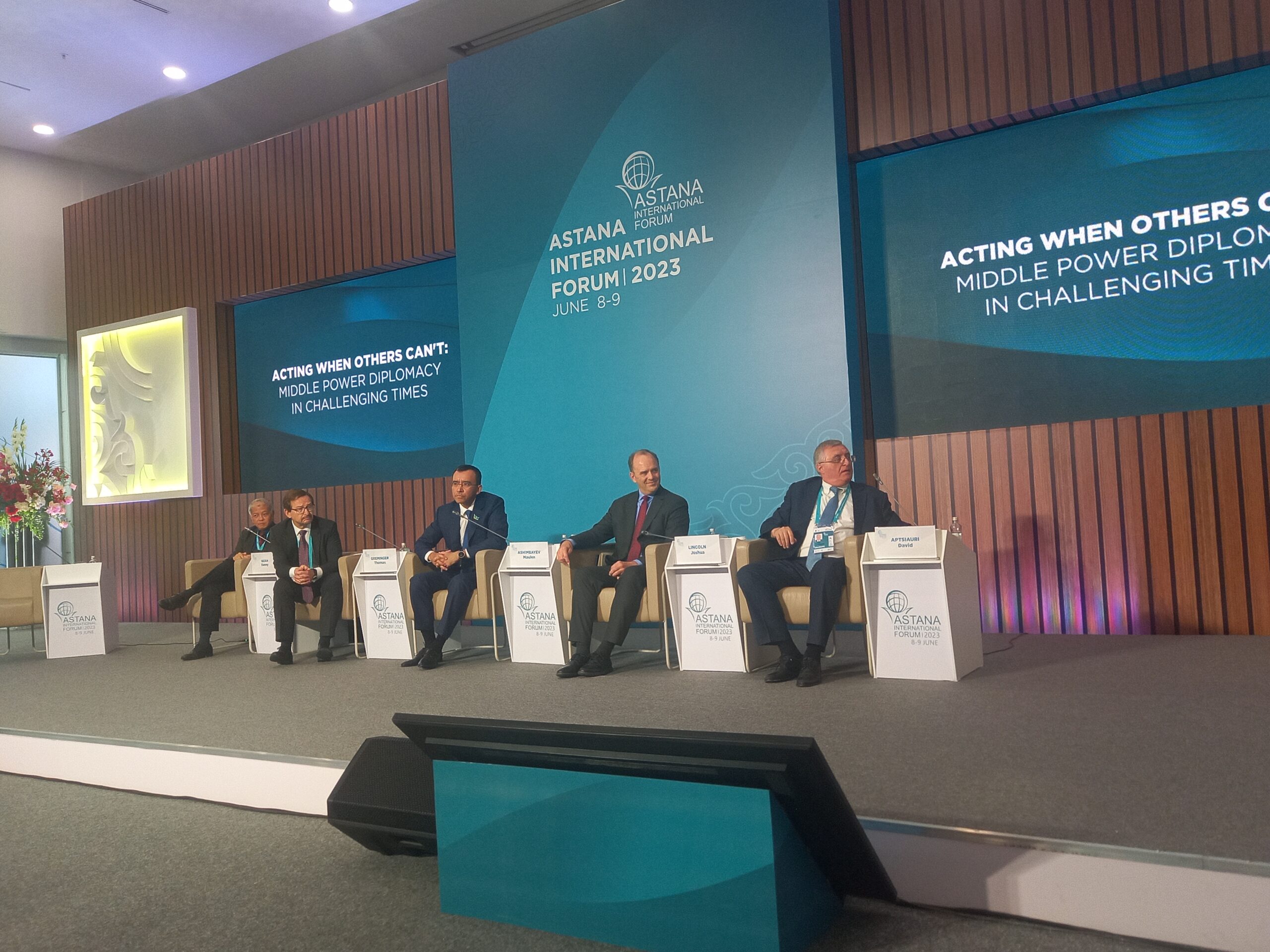ASTANA – Astana International Forum’s (AIF) panel session, Middle Power Diplomacy in Challenging Times, on June 9 focused on the role of middle powers in global diplomacy in the context of increasing tensions and polarization among major powers.

Experts discussed the role of middle powers in global diplomacy in the context of increasing tensions among major powers. Photo credit: The Astana Times.
The session featured David Aptsiauri, General Director of the Georgian Chamber of Commerce and Industry, Joshua Lincoln, Senior Fellow of the Centre for International Law and Governance at the Fletcher School of Law and Diplomacy at the Tufts University, Maulen Ashimbayev, Speaker of the Senate (upper chamber of the Kazakh Parliament), Thomas Greminger, Swiss diplomat and former Secretary General of the Organization for Security and Co-operation in Europe (OSCE), and Danny Quah, Dean and Li Ka Shing Professor in Economics at the Lee Kuan Yew School of Public Policy at the National University of Singapore Danny Quah.
Experts explored the unique advantages that middle powers have, such as their ability to bridge gaps between major powers, as well as their greater flexibility and adaptability when responding to geopolitical shifts.
The participants discussed how middle powers could effectively navigate complex diplomatic challenges and promote stability and cooperation in a rapidly changing global landscape, focusing on the Central Asian region and Kazakhstan’s role as a potential and influential middle power mediator.
The session, moderated by accomplished broadcast journalist and producer Stephen Cole, centered around how middle powers can play a more active role in shaping global norms and institutions to prevent an escalation of conflicts and promote cooperation among nations.
Welcoming the meeting participants, Ashimbayev highlighted the increasing role of the middle powers. According to him, “the world is getting more uncertain and alarming because of a number of factors, including disagreements and tensions between states.”
He also noted the growing inefficiency of key global institutions, initially designed to ensure security, proposing the need to reset and develop them.
“All these tendencies are taking place at a time when the world faces serious challenges and threats, including conflicts and environmental issues,” he said.
The participants discussed the role of international institutions and the transformation of their mechanisms to ensure efficient security and interaction. Notably, they focused on the new paradigm of international relations based on the principles of equality, dialogue, and respect for the territorial integrity of all states, moving away from the global system developed around the interests of the great powers. According to Ashimbayev, middle powers should play a key role in this new paradigm, balancing national and global interests.
“I think the world needs this middle power diplomacy and bridge building. If you want to be successful and effective, you need to be active,” Greminger noted.
The participants also discussed how middle powers could promote security and cooperation in the current political climate, including providing frameworks for dialogue that the countries can use to build diplomatic bridges.
“The proliferation of crises requires intensive and increasingly comprehensive responses. I think middle-power diplomacy is a response to this. It is the right approach,” Lincoln said.
The participants agreed that the time has come for middle power diplomacy, though it might be a long, complex and controversial process, which may take at least 50 years.
